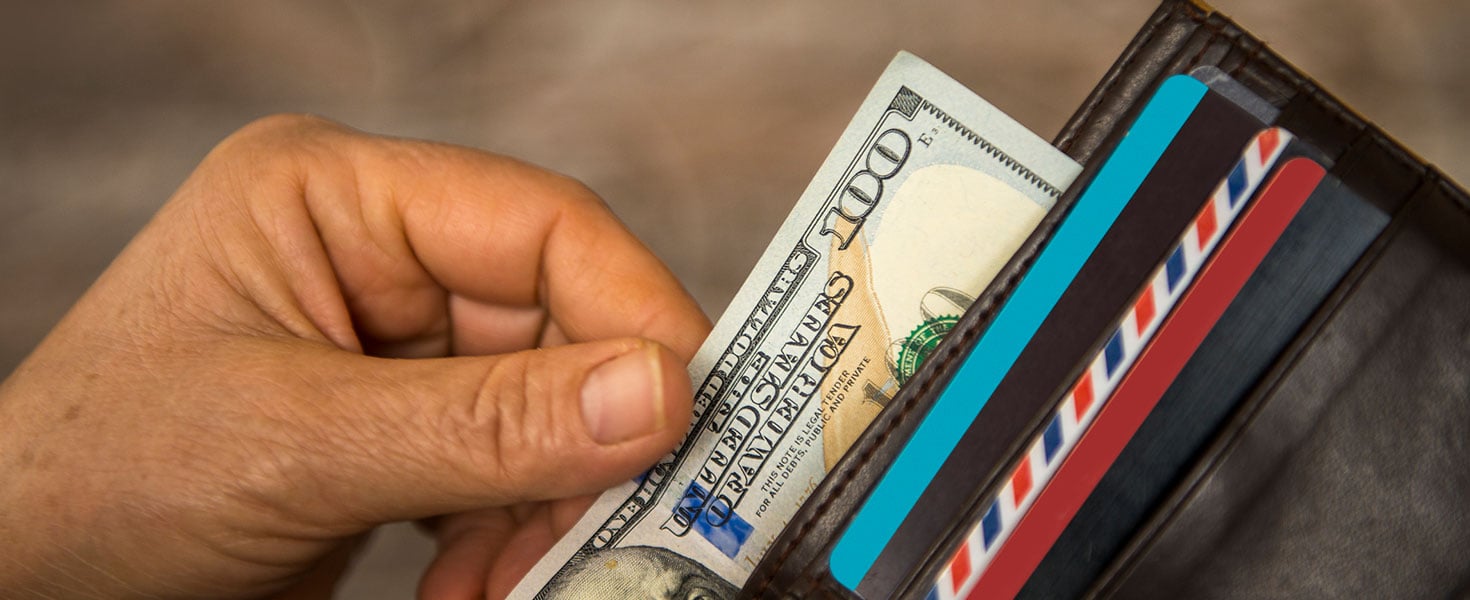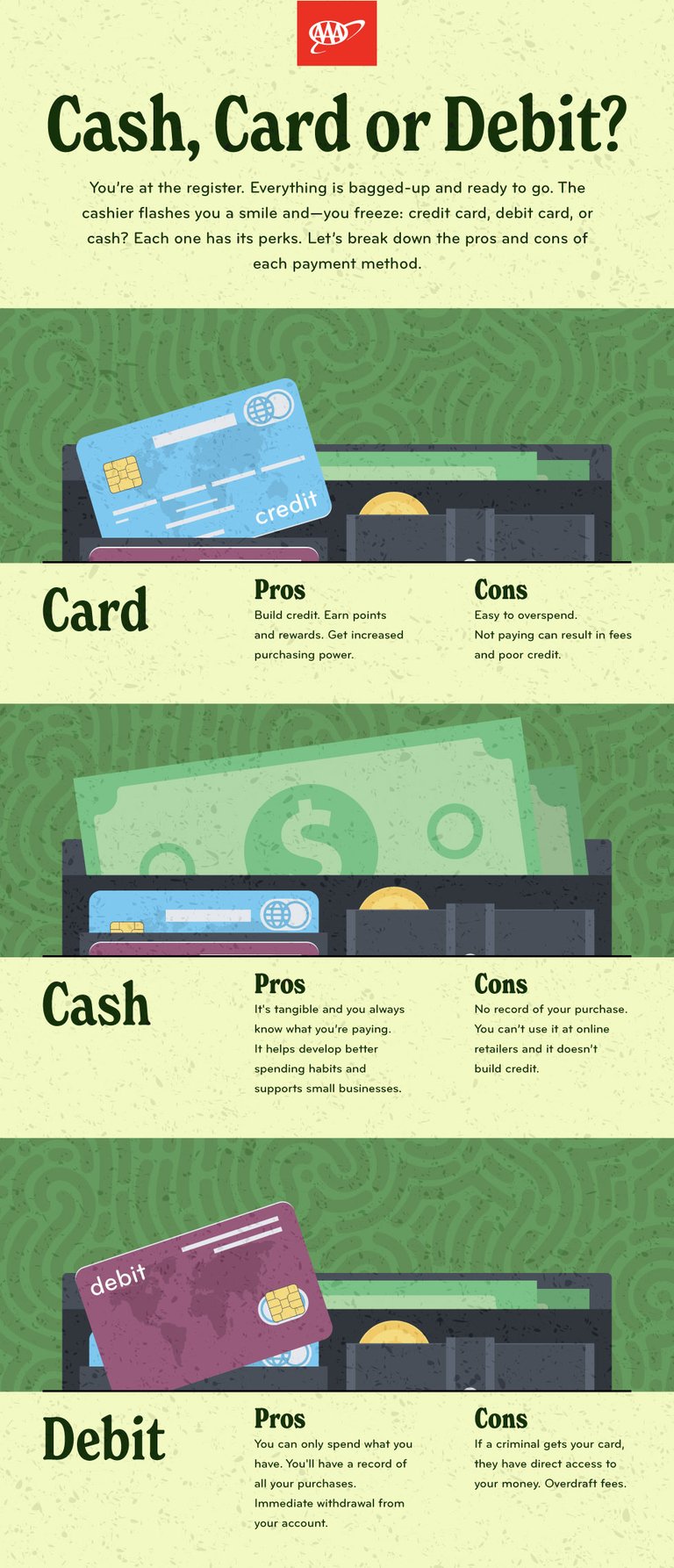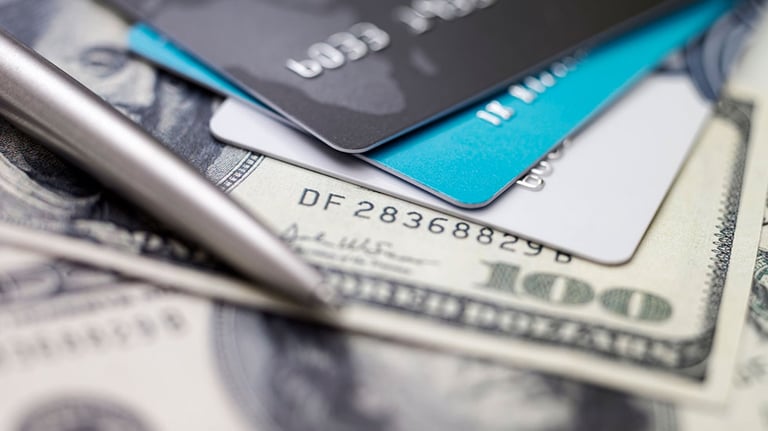

When you get up to the register, what’s the first thing you reach for in your wallet? For some, it might be one of the many plastic cards lining their pockets. For others, it might be a few bills. While everyone has their comfort zone, your preferred payment method might be letting you down. Between a credit card, cash, and debit card, each one comes with unique perks. It’s essential to take advantage of them when the opportunity to strikes.

When should I use a credit card?
With a credit card, you have a line of credit, or an amount of money your credit card company lets you borrow to pay for something. That credit line has its limits, though. Once you hit its cap, or “max it out,” it’s done for a while. You can only use it again when you pay back some of the money you borrowed.
There’s a lot of appeal to a credit card, though. One of the biggest reasons is that using one lets you build a credit history. So, if you want to improve your credit score, buy things with your card that you’ll have no issue paying off at the end of the month.
Another opportunity you can take advantage of is the rewards. Many credit cards come with sign-up bonuses or a point system. If you earn rewards for purchasing gas or groceries at specific retailers, make use of it.
Lastly, a credit card travels well. You don’t have to worry about any thieves getting access to your own cash with it.
However, they’re not problem-free. It’s easy to overspend using a credit card, resulting in fees and poor credit. So, it’s important to use your credit card responsibly. Make sure you use it to stay within your means.

When should I pay with cash?
Cash is straightforward: you hand the money over and watch it shrink. It can be a drag to see your money dwindle, but that helps you build a sense of responsibility. You always know how much you’re paying when you choose cash.
So, if you’re trying to stay on a tight budget or develop better spending habits, cash might be a good option. It keeps you in line and helps you learn your limits. Cash is also great if you are buying something from a small, independent retailer. For them, processing purchases with a credit card is more expensive. So, if you want to support that small business and their low prices, cash (or occasionally debit) might be the way to go.
But cash doesn’t have some of the advantages its plastic friends have. You can’t use it to buy from an online retailer or keep a record of your monthly purchases. Also, you can’t use it to build credit, like a credit card.

When should I pay with a debit card?
Debit is sometimes a middle ground between cash and credit. Essentially, debit lets you write a check for any items. So, the money gets withdrawn from your bank account. That means your limit is based on how much you have saved up there.
If you want to know when to pay with a debit card, you’ll run similar circles with cash users. A debit card helps you stay on top of your buying habits since there’s only so much money you have to spend. It’s also an immediate withdrawal so that you won’t face interest for any late bills. On the other hand, though, there may be an overdraft fee if you go to use your debit when you’re out of money.
Debit also gives you a record-keeping opportunity since you can get a statement from your bank that shows all your purchases. That link can also be dangerous, though. If a criminal gets their hands on your debit card or account information, they directly access your money. So, you might be better off leaving it at home when you take your next big road trip.

Which payment method is suitable for you?
So, which one is right for you? It might be all of them! Each form of payment comes with its pros and cons that make it appealing to use in specific settings. Depending on just one can mean losing out on benefits that the other two may provide. Adapt your approach to suit the situation you find yourself in.
